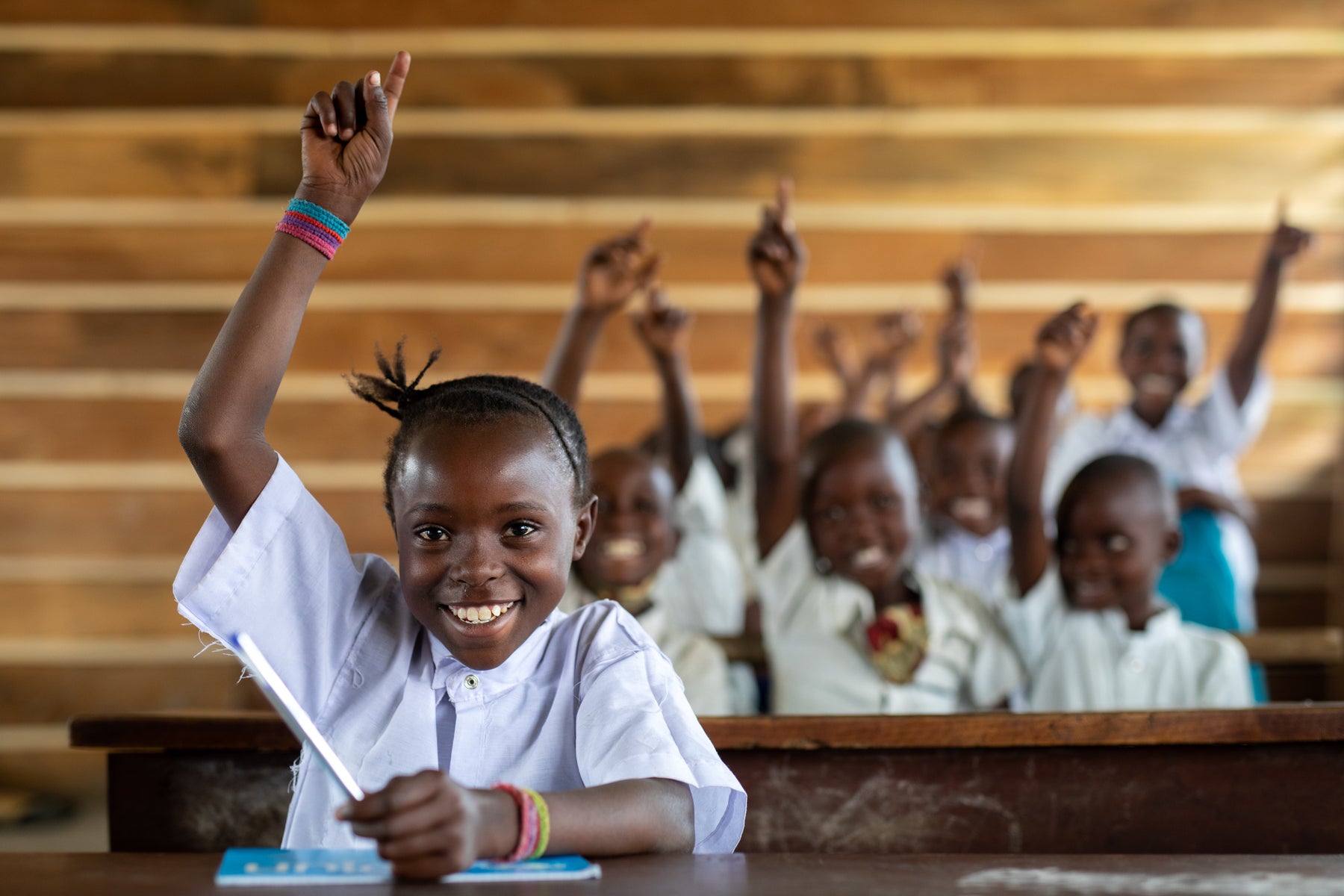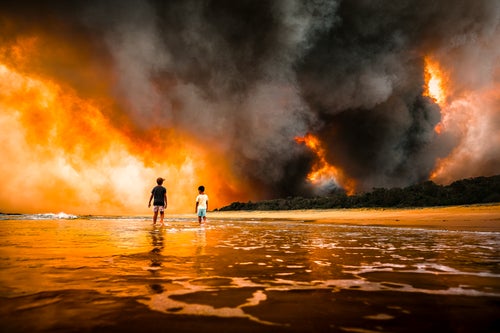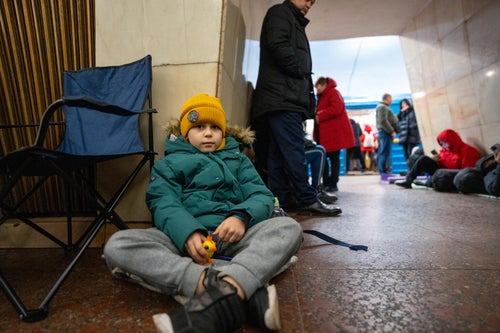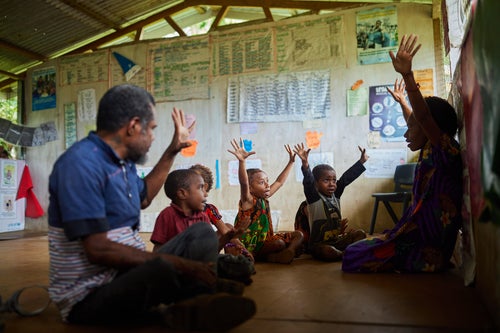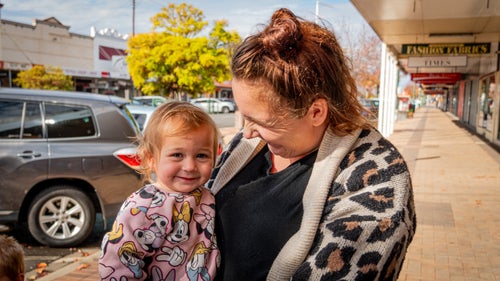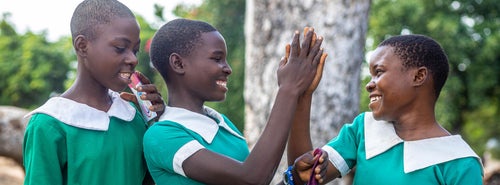Education is the key to the future we want to see for every child. It all starts here, in the classroom.
The classroom is a place for play, learning and for growth. Children develop skills they can take into adulthood and make friends they will cherish forever. During disaster and war, school can be a haven, protecting vulnerable children from the threat of violence or child marriage.
However, two years of disruptions to schooling because of the COVID-19 pandemic has had a devastating impact. More than 630 million children are still affected by partial or full school closures.
Schools must safely open and stay open. These photos prove that despite the challenges, in person learning is life-changing for children, no matter where they are.
Uganda
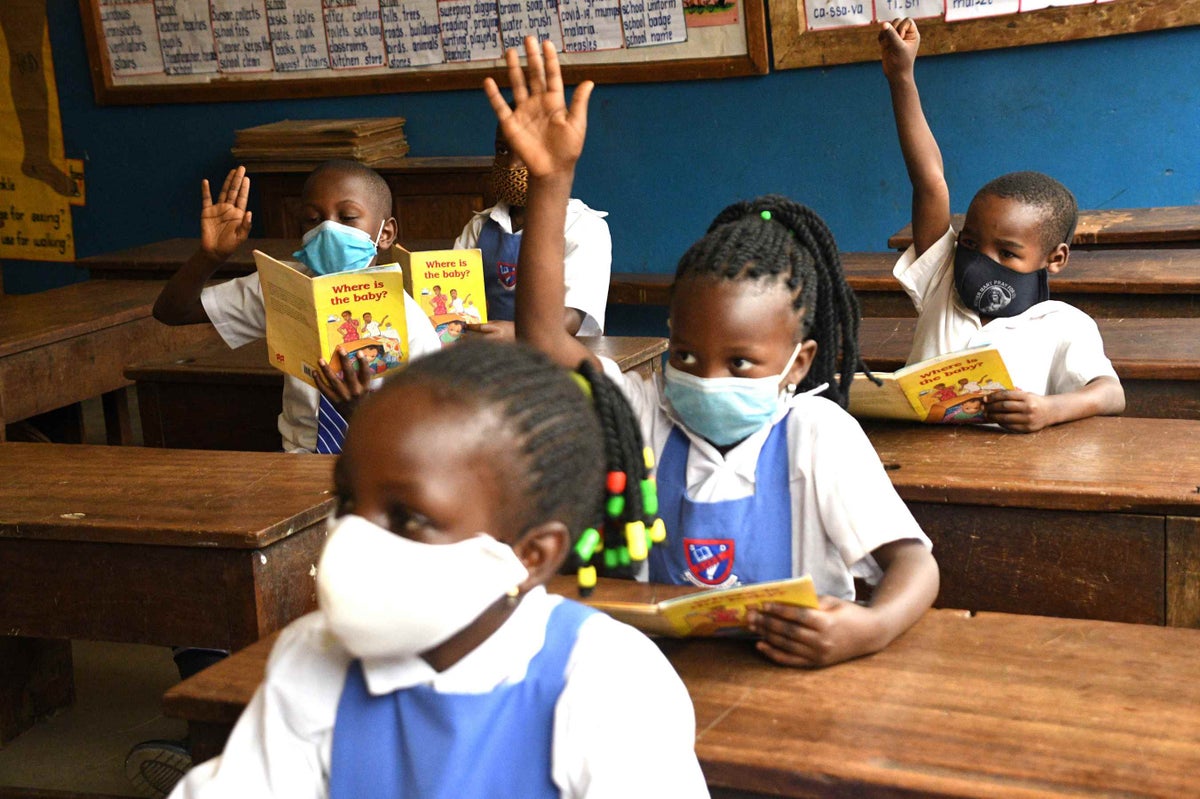
"I feel great to be back to school. I was missing learning and counseling from my teachers. At home I didn't learn online because my parents could not afford it," says Selugo.
Uganda reopened its schools in January 2022 after the longest COVID-19 shutdown in the world. Besides learning, schools offer safety, access to health care and sometimes children’s only nutritious meal of the day. We can – and must – reopen schools and keep them open for every child, everywhere.
Indonesia
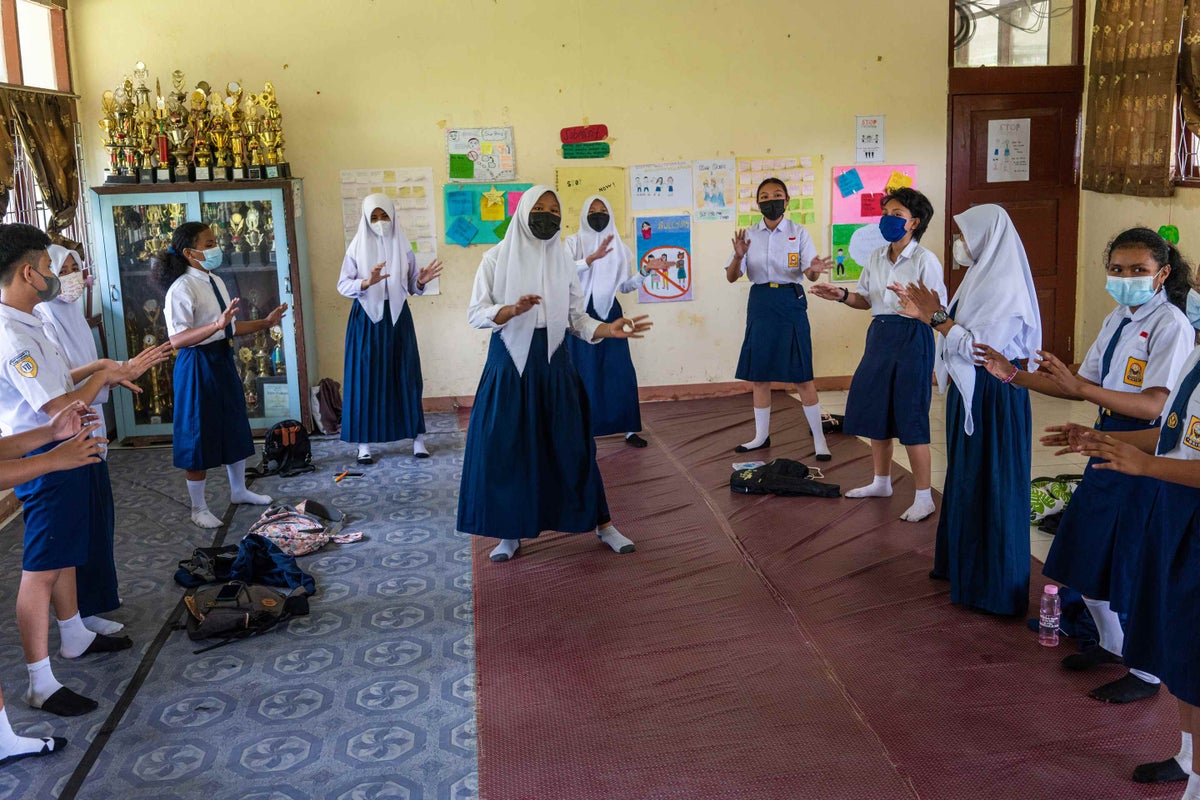
Novi was chosen by her peers to be an ‘agent of change’ to help change the culture at her junior high school in West Papua Province. The UNICEF-supported life skills program equips girls and boys with the skills to make informed decisions about their lives.
The pandemic resulted in the closure of all 530,000 schools in Indonesia in March 2020, affecting more 60 million students and around 4 million teachers. In January 2021, schools have now welcomed students back to the classroom after ensuring more than 80 per cent of staff had received two doses of COVID-19 vaccine.
Ethiopia
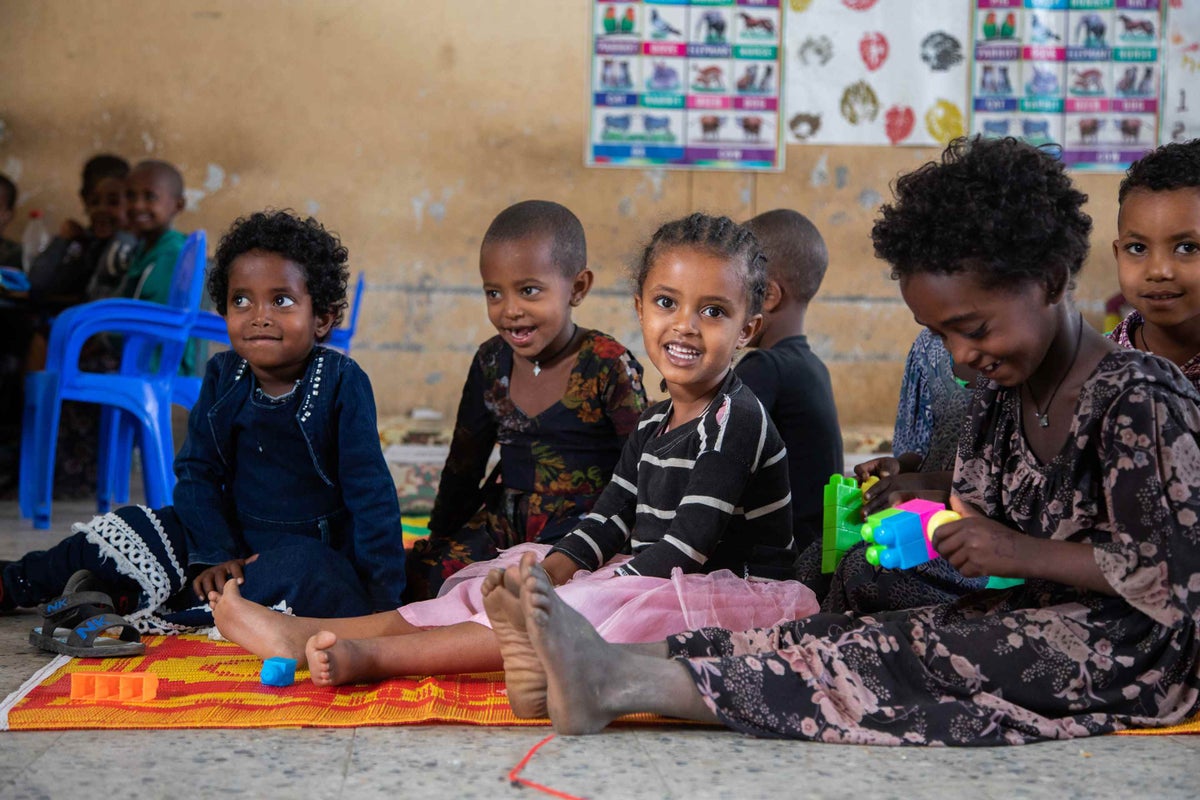
In March 2020, schools in Ethiopia closed because of COVID-19. Not only did community transmission of the virus stop schools from reopening, ongoing conflict in the country worsened – keeping classrooms closed for thousands of children across the country.
As a result, an estimated 1.4 million children have missed out on learning. UNICEF is supporting the reopening of schools and since January 2021 has reaching more than 191,000 emergency-affected children with education.
Despite the lack of learning materials and security situation in Tigray, more than 160,000 children have returned to learning in schools.
Democratic Republic of the Congo
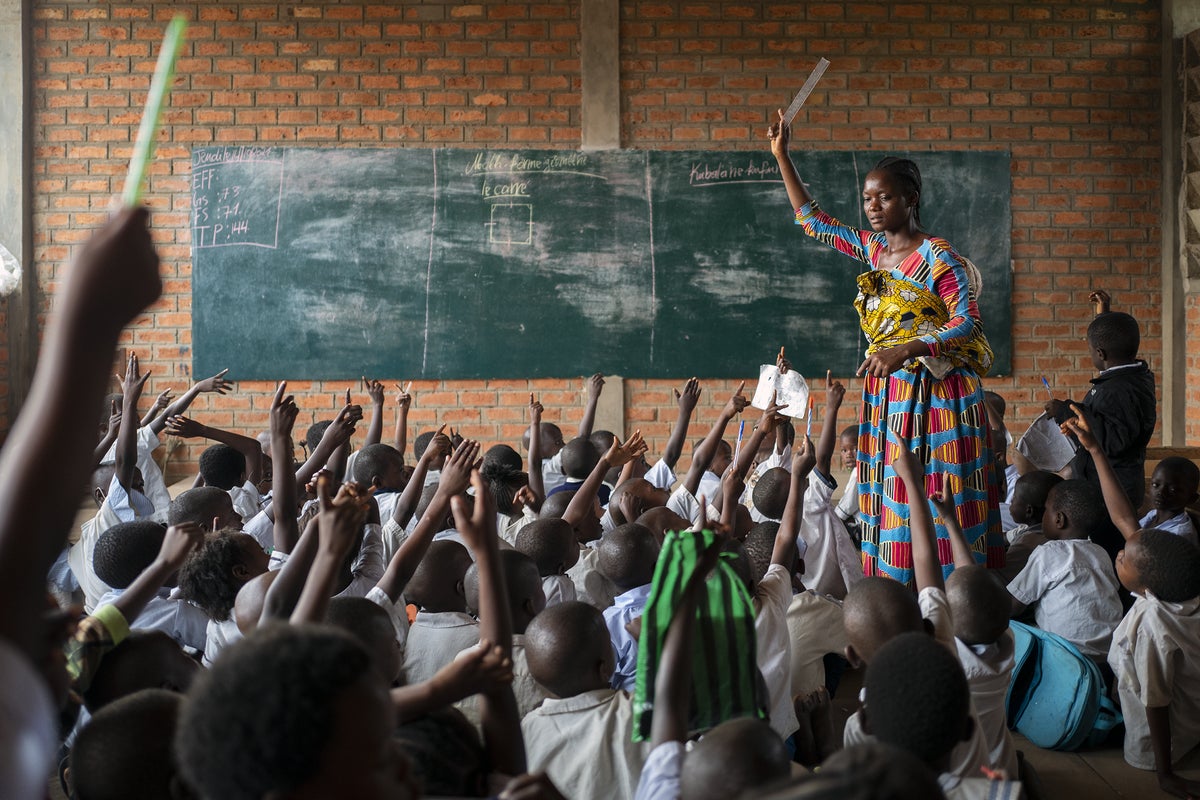
Education is the key to the future we all want to see. It all starts here, at schools like this one in the Democratic Republic of the Congo (DRC), where children eagerly raise their hands to answer questions.
In March 2020, schools closed nationwide in the DRC to help limit the spread of COVID-19, depriving more than 27 million children of access to education. Schools first reopened in October 2020, only to close again after two months in response to a second wave.
Afghanistan
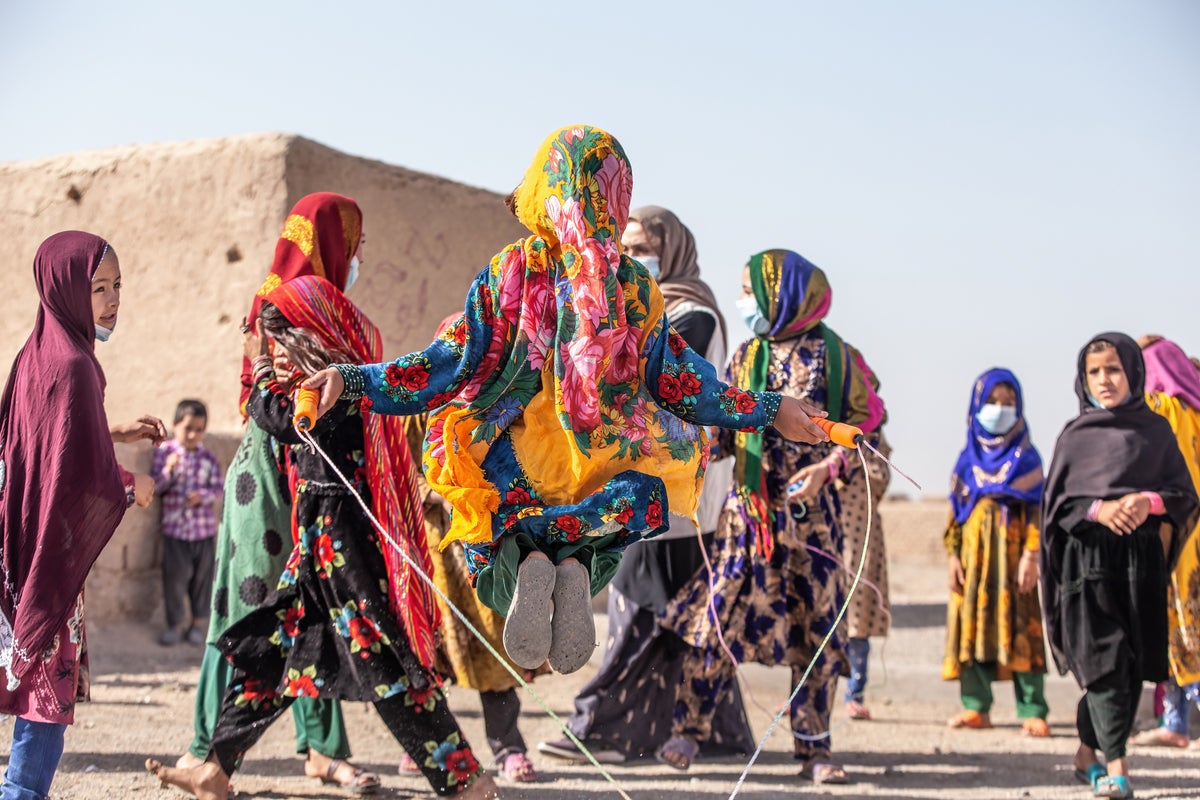
Not long ago, these children fled violence. They left behind their homes, friends and the communities they grew up in to seek safety in a camp for internally displaced people in Afghanistan. They’ve seen more violence in their few years than anyone should in a lifetime.
Now, they have a reason to smile. They’re back in school in a UNICEF Child Friendly Space where they have a chance to learn, play and be children again. When emergencies strike, classrooms may look different, but bringing children together to play and learn is one of the first steps to recovery and healing.
Papua New Guinea
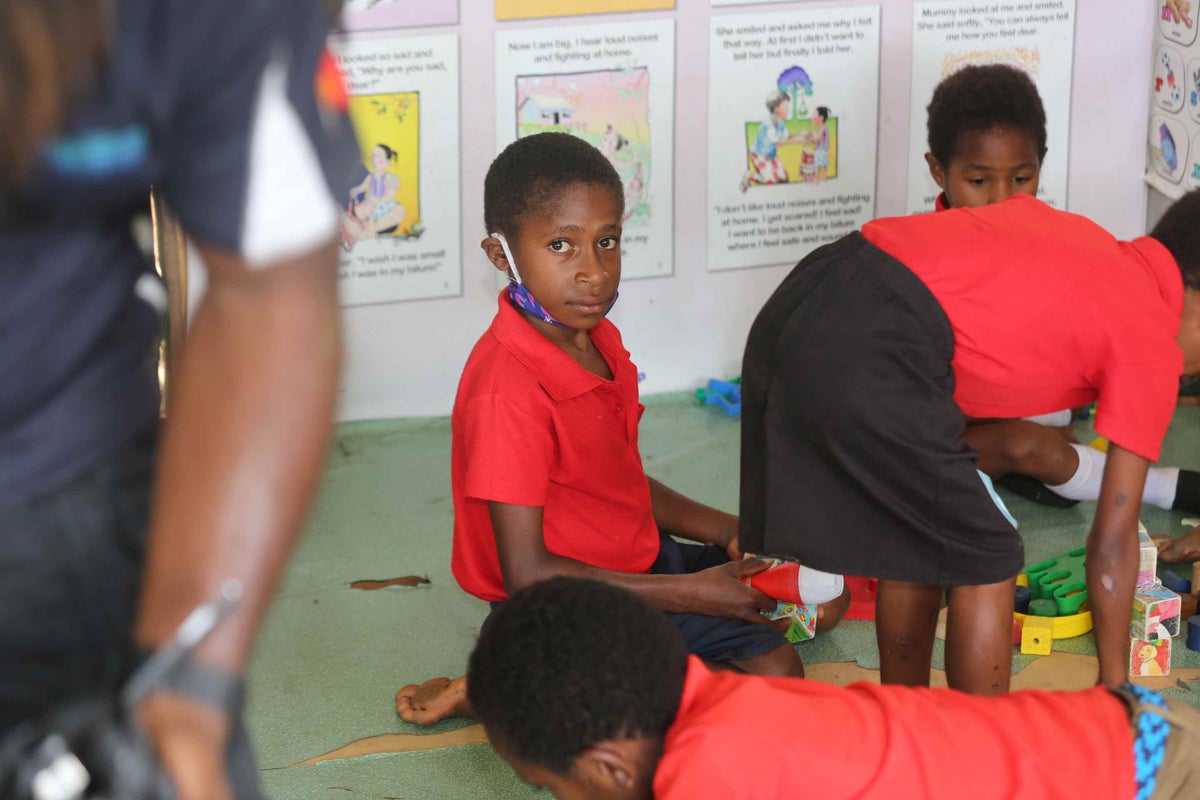
“All my children don’t know how to read or write so I want my grandson to be educated,” says his grandmother Gangena.
In Papua New Guinea (PNG), few children enrol in, let alone complete, early learning. Schools are often too far from remote villages or lack the resources for quality learning. In September 2021, a nation-wide lockdown due to COVID-19 disrupted the learning of an estimated 2.4 million students in PNG.
UNICEF-supported preschools like this aim to fill a deep education gap in a country where traditionally there has been limited early learning opportunities for young children. Our teams ensure the centres are accessible and inclusive for children with disabilities through teacher training.
Haiti
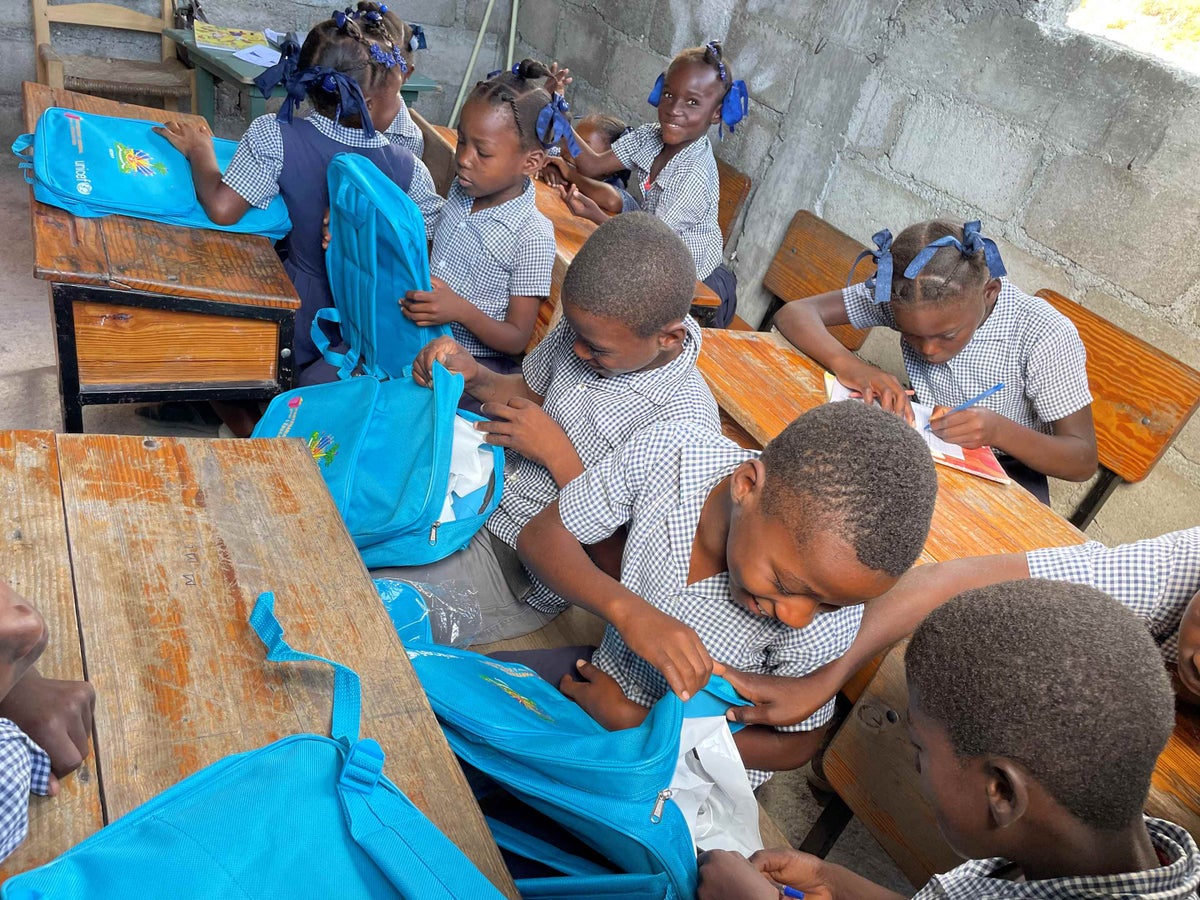
In an emergency, education is just like water, sanitation and nutrition - it cannot wait. Schools help children to stay safe, to cope with the profound stress of a crisis and to prepare for a more peaceful future. When fighting in Malakal, South Sudan saw 18 people die and a primary school burnt down - UNICEF helped get these children back to school as quickly and safely as possible.
Fiji
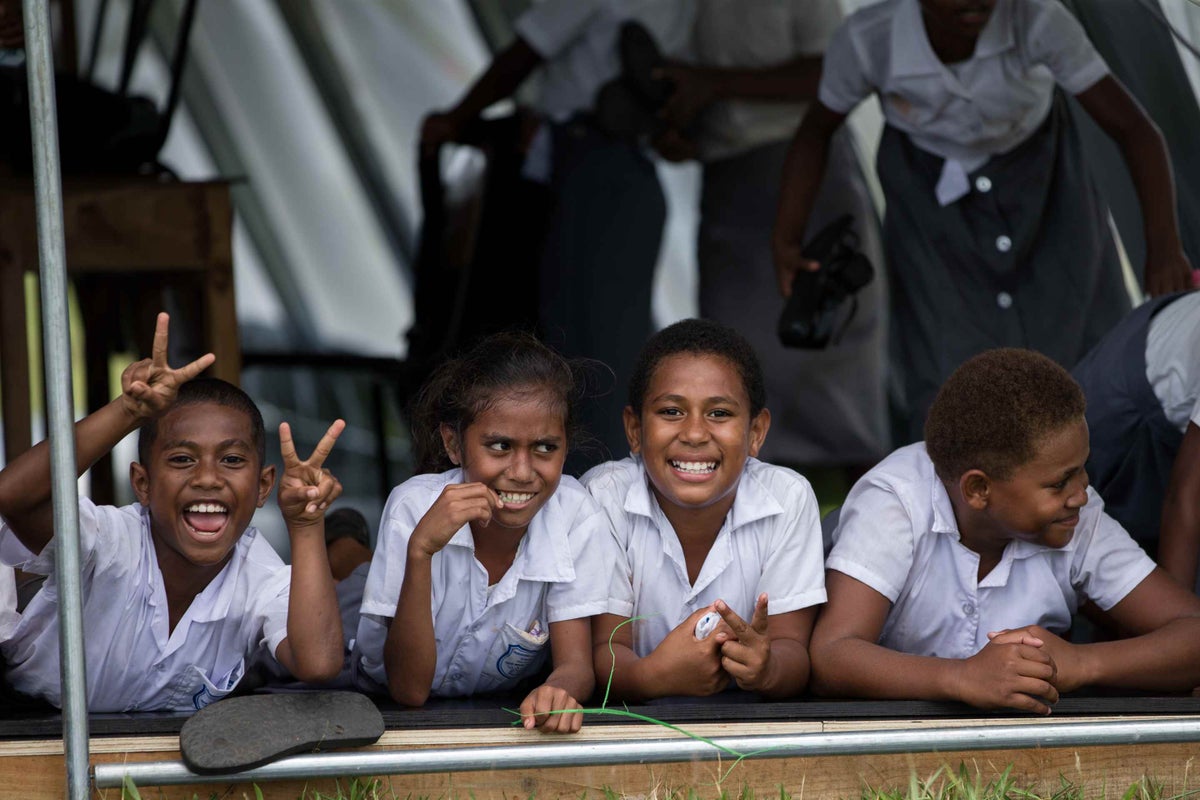
On their first day back to school, students at a primary school in Fiji pose as they enjoy their lunchbreak playing in front of their newly set up UNICEF-supplied temporary classroom.
In the aftermath of Tropical Cyclone Yasa UNICEF helped schools preare to welcome children back by providing education supplies, including tents and tarpaulins for temporary learning spaces. Every child deserves to have the opportunity to learn.
Burundi
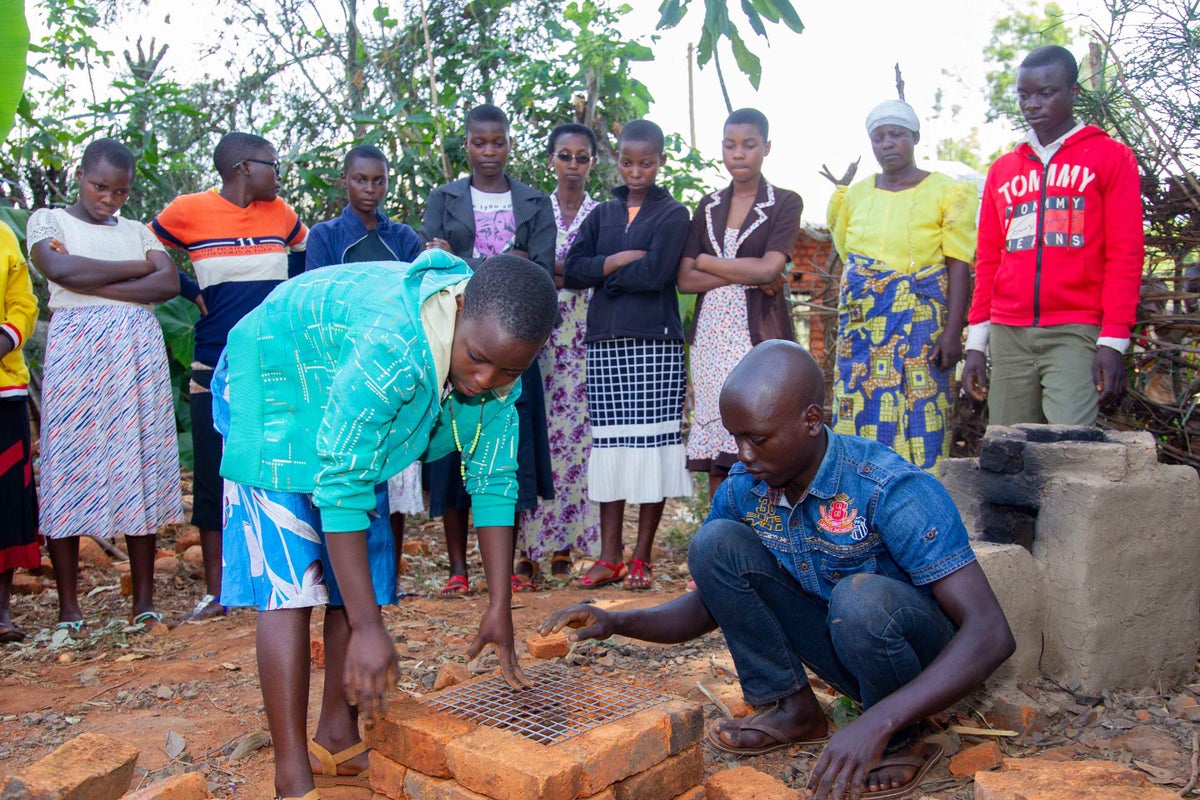
This is not your ordinary lesson. These teenagers in Burundi are learning how to make rocket stoves. This special type of stove uses less firewood and reduces smoke inhalation, giving young people more time to study, instead of collecting firewood.
“If I visit my relatives, I will build them an improved stove,” says Jean Baptiste. He is part of the Creatable program supported by UNICEF which teaches innovation and science, technology, engineering and mathematics to high school students. Learn more here.
Yemen
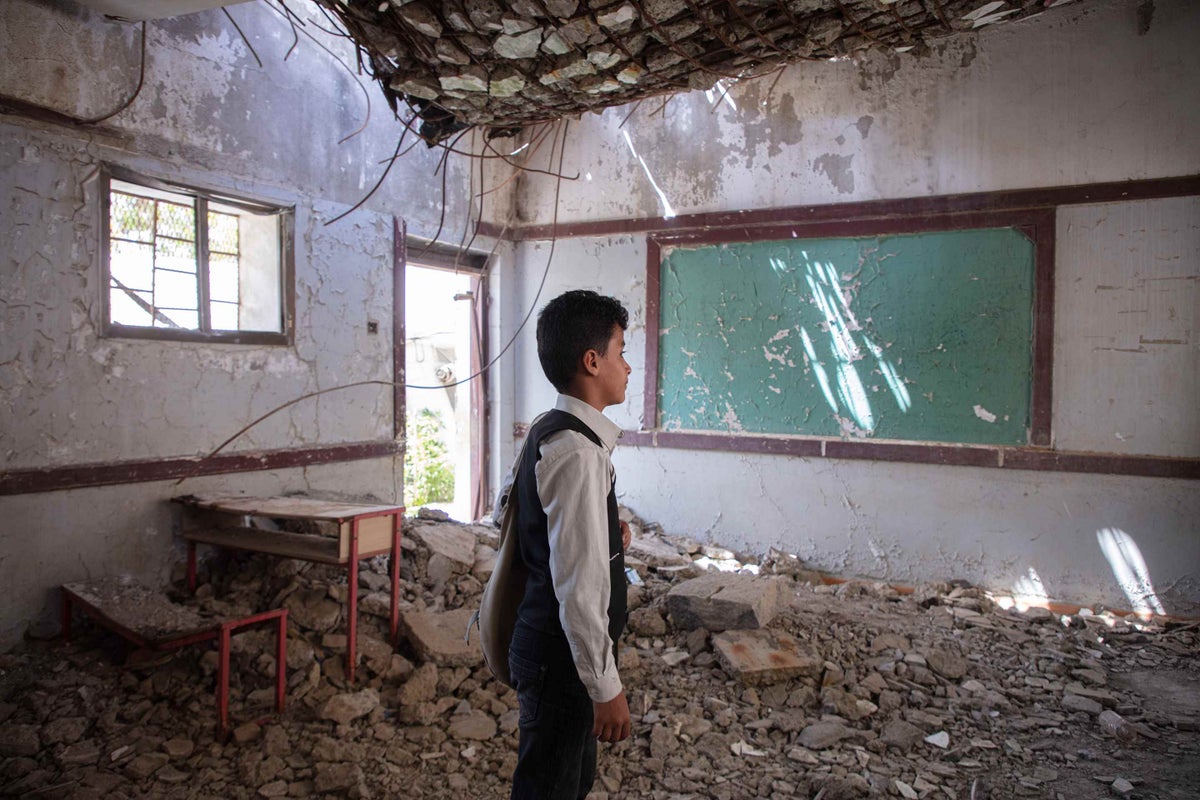
It only took minutes for bombing to damage Ahmed’s classroom in Yemen, but despite the circumstances, the school kept operating.
However, over 2 million school-age girls and boys are now out of school as poverty, conflict and lack of opportunities disrupt their education.
UNICEF has been on the ground in Yemen long before the crisis began. Our teams work to rehabilitate and repairs schools. Through conflict and disaster, our work never stops to ensure every child can learn.
Cambodia
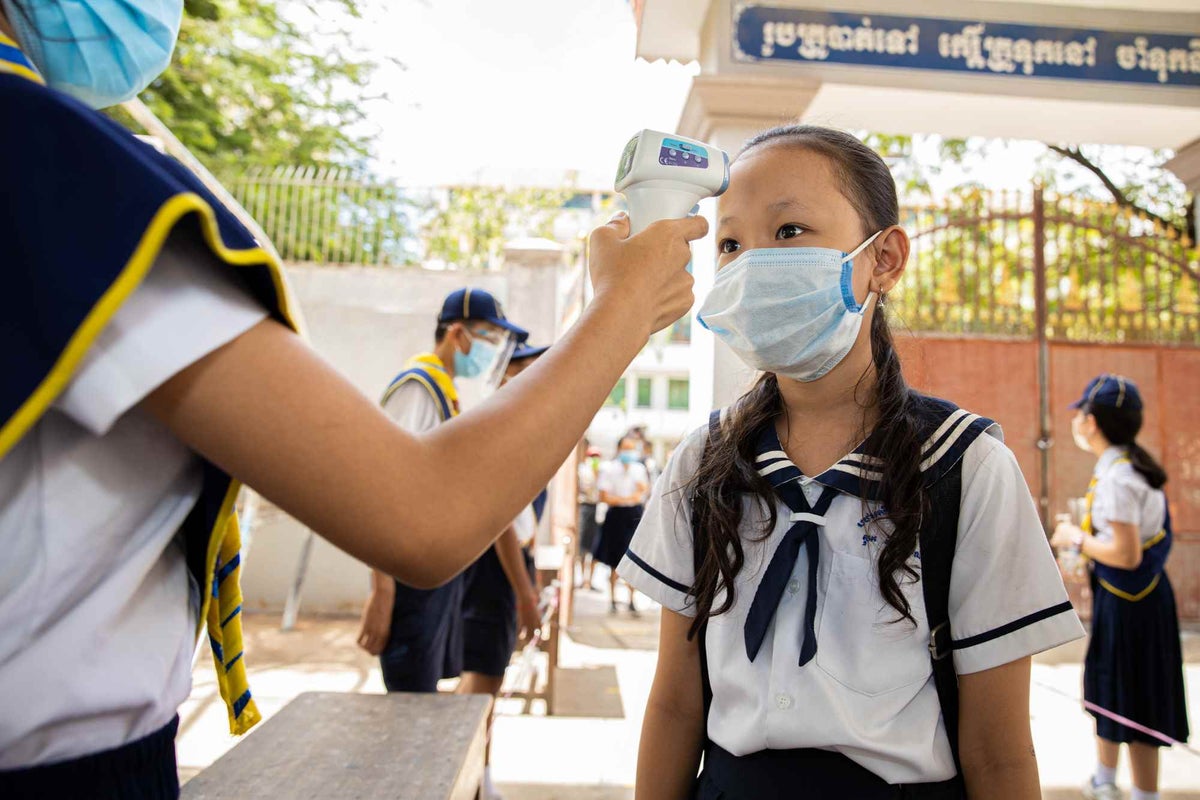
Children have shown their resilience by adjusting to new routines to keep safe from COVID-19 at school. Here, a fellow student checks a young girl’s temperature as she arrives at school. UNICEF is working with the Cambodian Government to help every school open safely and provide soaps, hand sanitiser, temporary handwashing stations, thermometers and more.
Côte d'Ivoire
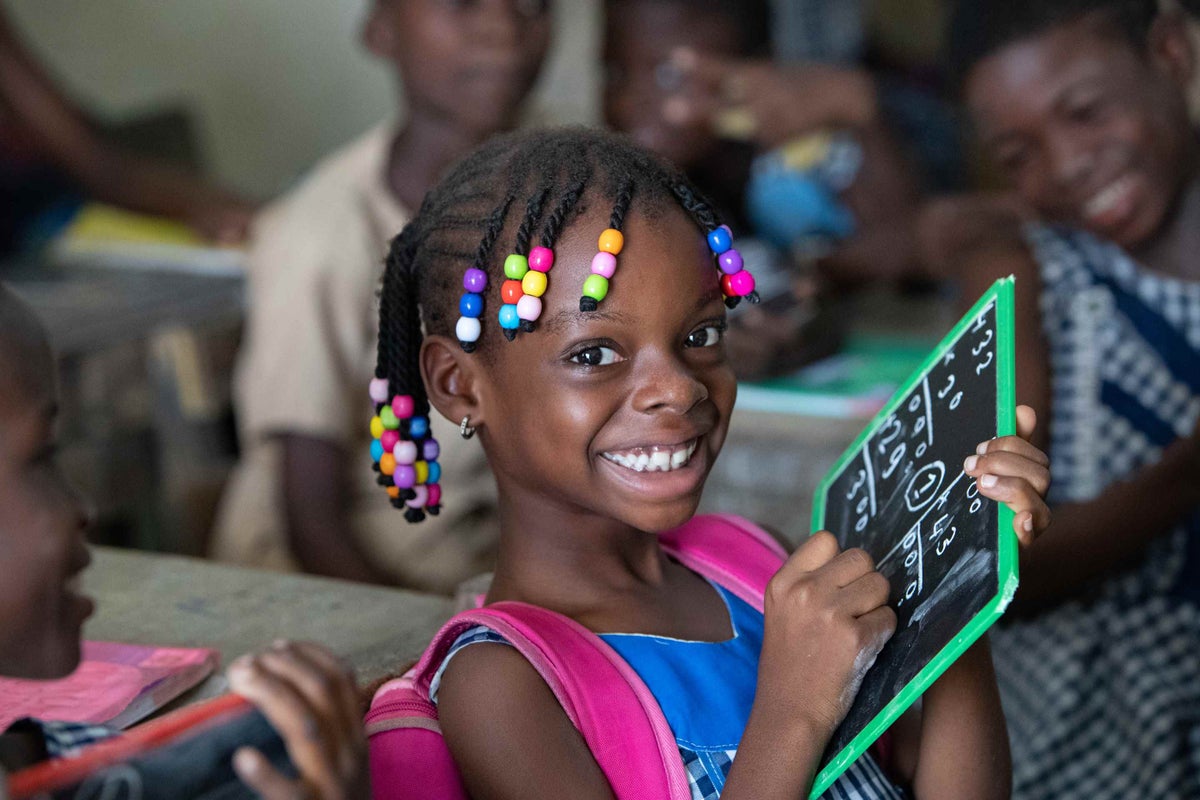
In the absence of books, paper or slates, a student in Côte d'Ivoire practises writing with chalk at their desk.
Around the world, our teams on the ground never tire of seeing smiling young faces in the classroom, surrounded by their friends and supported by their teachers.
Australia
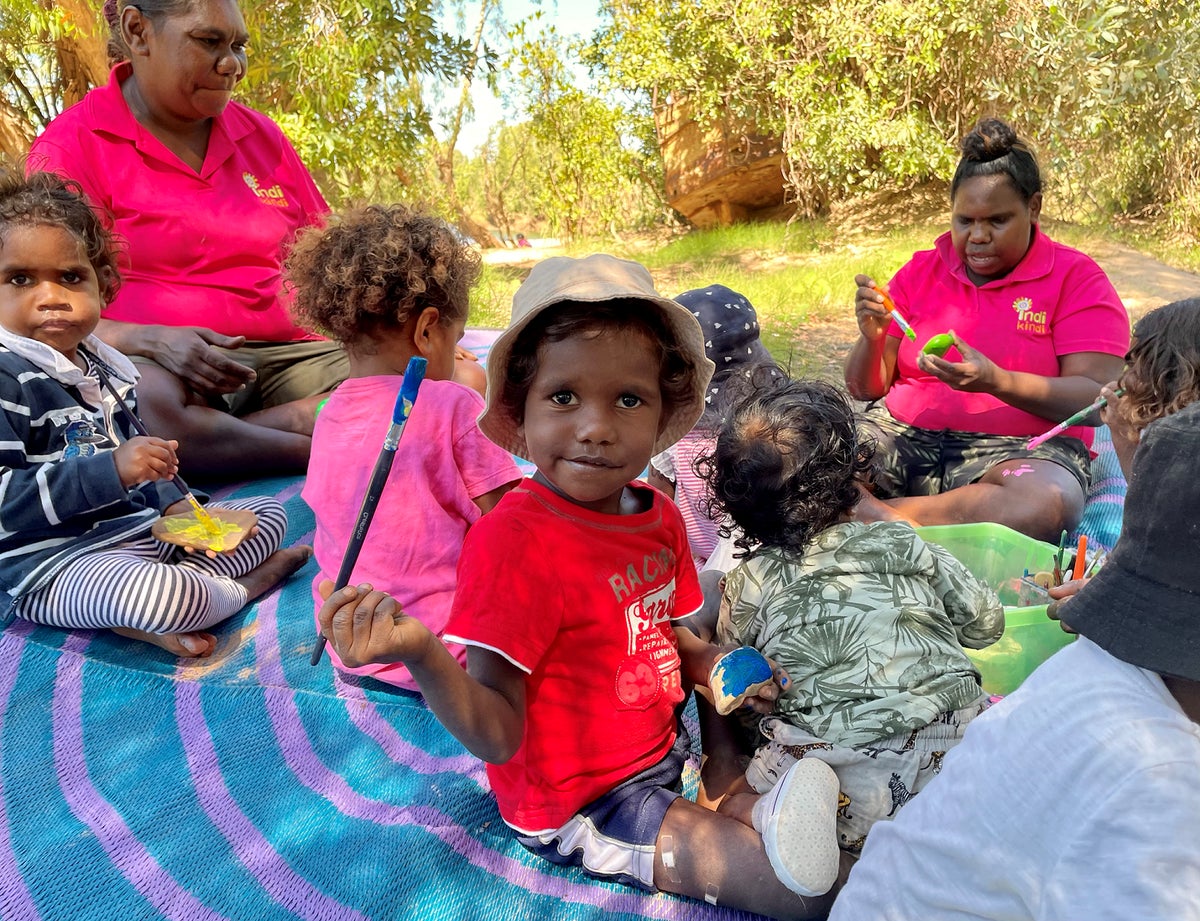
This outdoors classroom is helping little ones in Borroloola, Northern Territory connect to culture and Country. Welcome to Indi Kindi, an early years programs that travels from the bush to the river and local library.
The first years of a child’s life are the most important. That’s why UNICEF Australia partners with local organisation Moriarty Foundation to give Indigenous children the best possible start to life through early childhood education.
During the pandemic, children have been taught how to wash their hands safely and thankfully, cases have stayed low in the community to allow Indi Kindi to continue.
Niger
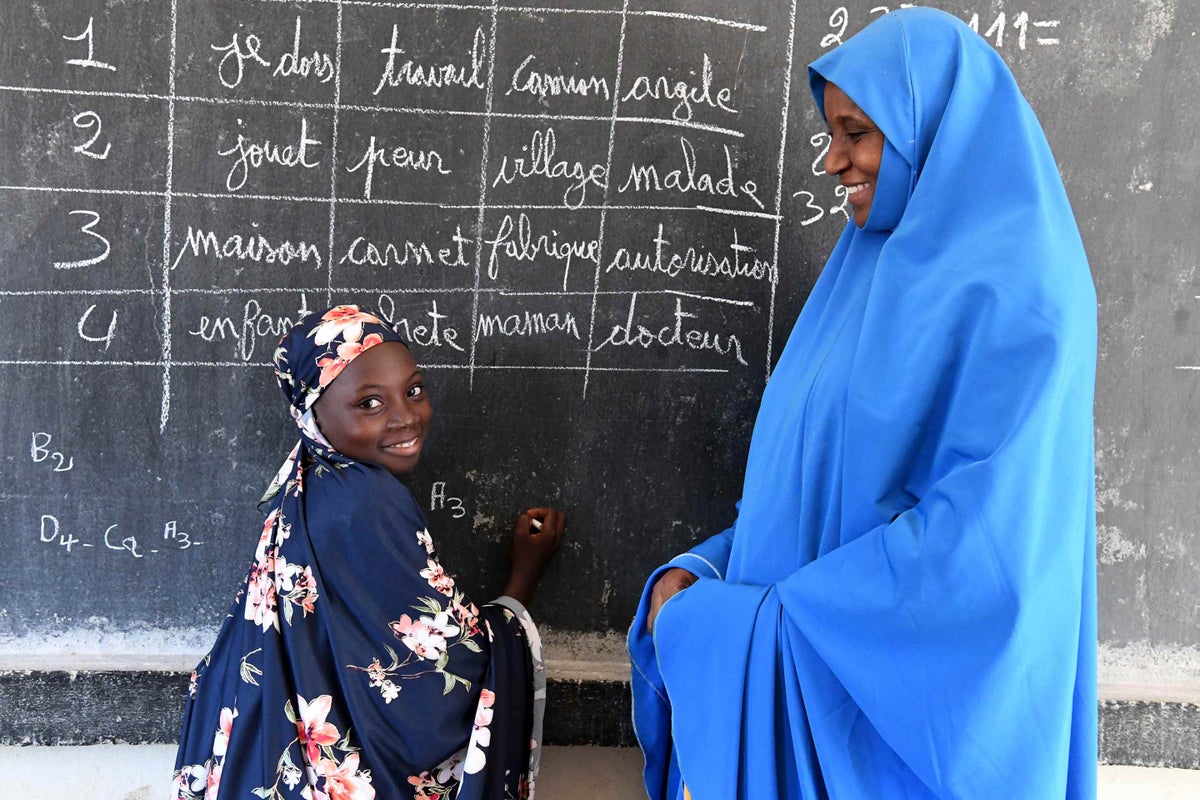
A well-trained teacher can bring a classroom to life. Meimouna has been a mother and teacher for seven years. “Before I was working as a nutritionist for an NGO but my heart is in the class and to educate our children,” she says.
UNICEF is working to give teachers the skills, knowledge and supplies they need to support and develop children like this student in Niger.
Syria
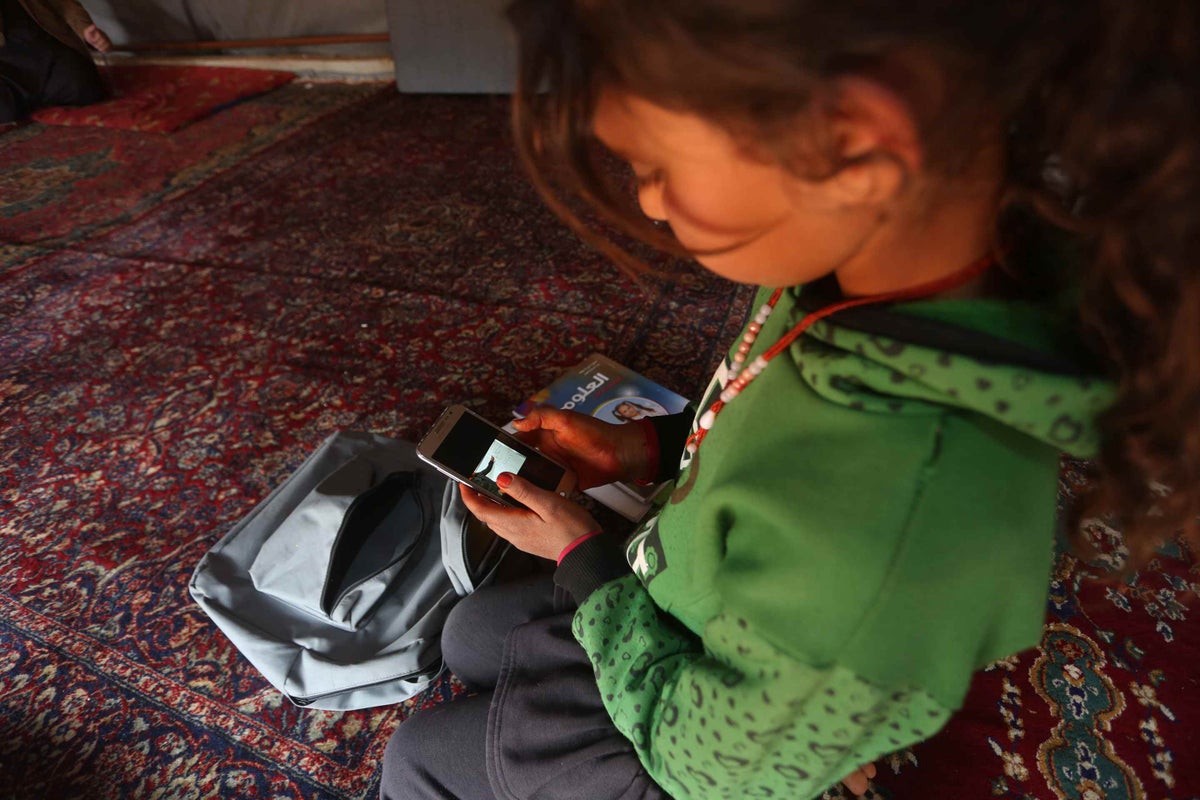
Learning doesn’t stop during a pandemic. Maria, nine, is following a pre-recorded lesson on her dad’s smartphone.
Maria and her family fled conflict and found safety at a camp for internally displaced people where she also joined the school. “I like getting the lessons this way, I like to keep learning,” says Maria, “But I really would like to get back to the school to meet my friends and play with them.”
All countries across the Middle East and North Africa made at least one online platform available for home-based learning. However, at least 39 million children have not had access to remote learning. While schools have now opened in Syria UNICEF continues to advocate for all children across the region to resume in-person learning as soon as possible.
Help give every child the chance to learn
All children have the right to learn. But every year, conflict, crisis and COVID-19 is denying millions of children that right. With regular and reliable support from people like you, UNICEF can reach the most vulnerable children with education, set up schools in conflict zones and stay on the ground to help children start learning again after a natural disaster hits. Your monthly gift makes it all possible.
Support UNICEF today to help fulfil every child’s right to go to school, play with their friends and get the education they’ll need to thrive in life.. UNICEF helps keep children in school by:
- Providing teachers with the training and supplies they need to help children reach their potential
- Supplying safe water and hygiene facilities to schools to keep children attending
- Working with governments to help open schools open safely
- Delivering temporary learning shelters so children can keep learning when disaster strikes
You can help.
Become a Regular Donor
By signing up with a monthly gift, you’ll join our Global Parents to continue protecting children from exploitation, hunger, disease and inequality wherever the need is greatest.
Related articles
Stay up-to-date on UNICEF's work in Australia and around the world



